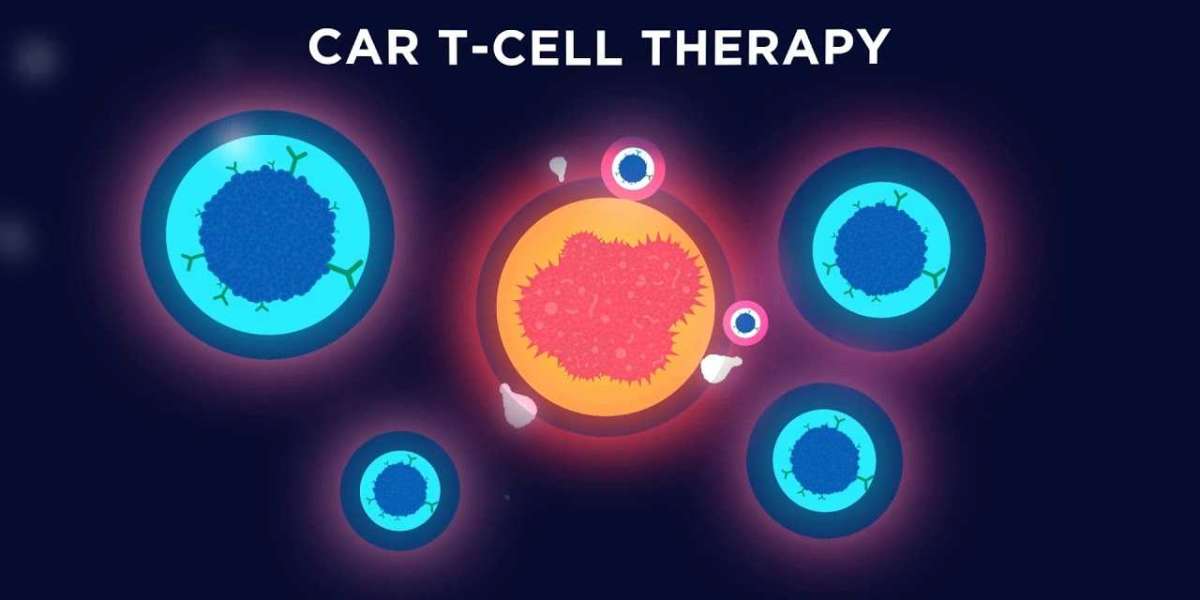Unlocking the Potential of T-Cell Therapy in Healthcare
In recent years, the landscape of medicine has witnessed a groundbreaking revolution with the advent of T-cell therapy. This innovative approach has redefined the treatment paradigm for various diseases, including cancer and autoimmune disorders. Leveraging the body's own immune system, T-cell therapy has emerged as a beacon of hope, promising more effective and targeted treatments, steering the healthcare industry toward unprecedented advancements.
The T-Cell Therapy Market is estimated to be worth $3.5 billion in 2023 and is expected to grow at compounded annual growth rate (CAGR) of 23% during the forecast period. Cancer is known to be one of the leading causes of deaths worldwide. In fact, as per the WHO, close to 10 million cancer related deaths were reported in 2020. Further, it is estimated that, by the end of 2040, 27.5 million new cancer cases will be added to the global numbers, exerting tremendous physical, emotional and financial strain on affected individuals, their families, communities and national health systems.
Understanding T-Cell Therapy
At the core of T-cell therapy lies the manipulation of T-cells, a type of immune cell with remarkable capabilities. These cells play a pivotal role in recognizing and combating pathogens, infected cells, and even abnormal cells, such as cancerous ones. T-cell therapy involves the extraction and modification of a patient's T-cells to equip them with enhanced abilities to recognize and destroy specific targets.
The Impact on Cancer Treatment
The most prominent application of T-cell therapy has been in the realm of cancer treatment. Traditional treatments like chemotherapy and radiation have long been the mainstays, but they often come with severe side effects and limited efficacy. T-cell therapy, on the other hand, presents a personalized approach, tailoring treatment to an individual's unique immune system.
Chimeric Antigen Receptor T-cell therapy (CAR-T) is a standout example. This method involves genetically modifying a patient's T-cells to express chimeric antigen receptors, which can effectively recognize and eliminate cancer cells bearing specific markers. The results have been remarkable, leading to unprecedented response rates and remission in certain blood cancers like leukemia and lymphoma.
Expanding Frontiers Beyond Oncology
Beyond cancer, T-cell therapy holds promise for a spectrum of diseases. Autoimmune disorders, where the immune system mistakenly attacks the body's own tissues, stand to benefit. By reprogramming T-cells to distinguish between healthy and abnormal cells, this therapy could potentially mitigate the destructive autoimmune responses seen in conditions like rheumatoid arthritis, multiple sclerosis, and lupus.
Moreover, infectious diseases like HIV/AIDS and viral hepatitis present another frontier. Scientists are exploring the potential of T-cell therapy to bolster the immune system against these pathogens, potentially offering novel treatment avenues.
Market Landscape and Challenges
The T-cell therapy market has witnessed exponential growth, with pharmaceutical companies heavily investing in research and development. The market is dynamic, marked by collaborations between academia, research institutions, and biotech firms, fostering innovation and driving the translation of scientific discoveries into clinical applications.
However, challenges persist. The complexity of manufacturing personalized therapies at scale poses logistical and cost-related hurdles. Additionally, ensuring the long-term safety and efficacy of T-cell therapies remains a critical concern, warranting further research and clinical trials.
The Future Horizon
The future of T-cell therapy is promising. Ongoing research focuses on refining techniques, broadening the spectrum of treatable diseases, and improving the accessibility and affordability of these groundbreaking treatments. Advancements in genetic engineering, coupled with a deeper understanding of immune responses, continue to fuel optimism about the transformative potential of T-cell therapy across diverse medical landscapes.
As the field continues to evolve, collaboration and knowledge-sharing among stakeholders will be pivotal in surmounting challenges and harnessing the full potential of T-cell therapy for the betterment of healthcare worldwide.
The trajectory of T-cell therapy is not just a scientific milestone; it signifies a profound shift toward personalized, precise medicine that harnesses the body's natural defenses. With ongoing advancements and a commitment to innovation, T-cell therapy stands poised to reshape the future of medicine, offering renewed hope to patients and healthcare professionals alike.





